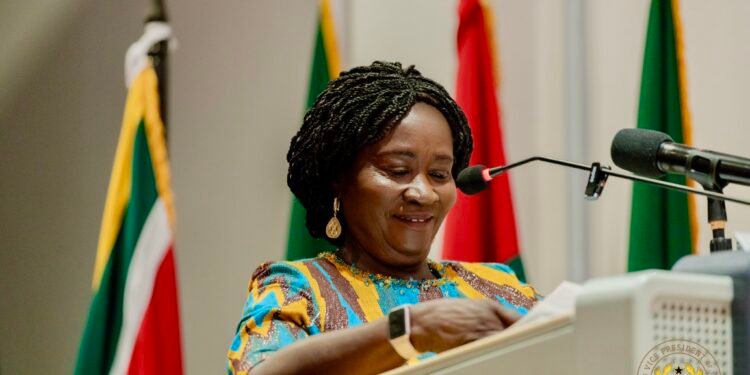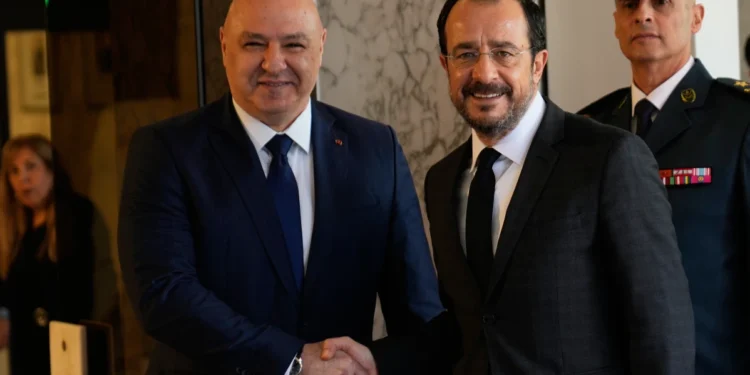A new policy brief by Africa Education Watch (EduWatch) has revealed that despite government efforts to streamline admission costs under the Free Senior High School (Free SHS) programme, many schools continue to impose additional, unapproved items on parents—forcing households to pay up to 40 percent more than the cost set under the harmonised prospectus.
The findings expose deep compliance gaps that undermine the policy’s core objective of reducing financial barriers to secondary education, particularly for low-income families.
EduWatch’s analysis begins by placing the issue within Ghana’s broader poverty context. According to the IMF, 25.9 percent of Ghanaians live in extreme poverty—earning the equivalent of GH¢7,900 a year. For these families, the cost of secondary school admission is a decisive barrier.
Though Free SHS enrolment reached 1.4 million students in the 2024/25 academic year, and an estimated 590,000 more are expected in 2025/26, the cost of admission remains a major challenge for many households.
The government’s harmonised prospectus was introduced in 2023 precisely to address this problem by curbing unapproved charges and the inconsistent demands placed on parents by different schools.
“In September 2025, ahead of the school placement exercise, the GES and GTVETS published harmonised prospectuses for use by their respective schools in managing admissions.
“This policy brief assesses the compliance and impact of the GES and GTVETS harmonised prospectus on the cost of admissions to parents in the 2025/26 academic year.”
Africa Education Watch
Using market surveys conducted at Madina Market and prospectus reviews at Adisadel College and St. Paul’s Technical School, EduWatch found significant disparities between government-approved costs and what schools actually demand.

Under the GES harmonised prospectus for the 2025/26 academic year, boarding students are expected to spend approximately GH¢3,522 on compulsory personal items and a selected sanitation kit.
This marks a steep rise from the GH¢2,100 cost recorded in 2023/24, representing a 67 percent increase over two years. While rising market prices partly explain the surge, the study stressed that adherence to the harmonised list remains essential to preventing exploitation.
Schools Disparities
At Adisadel College, the actual cost of procuring items on the school’s prospectus amounted to GH¢5,198—47 percent more than the harmonised GES guideline.
EduWatch identified several items on the college’s list that do not appear in the approved prospectus, including additional clothing, electric irons, exercise books, graph books, African print church cloth, and even slippers.
“Although exercise books, notebooks, a graph book, school clothes, and uniforms are provided under the free SHS Programme, delays in supply often compel schools to request that parents purchase these items as part of the prospectus.”
Africa Education Watch
A similar pattern was found within the technical and vocational education sector. For TVET schools, the GTVETS standardised prospectus requires GH¢4,132, including personal items, sanitation kits and Personal Protective Equipment (PPEs) for practical training.
However, the prospectus at St. Paul’s Technical School in Kukurantumi cost parents GH¢5,712 even without the required PPEs. If PPEs were added, total costs would exceed GH¢6,000—far above the standardised expectation.

EduWatch observed that almost a quarter of the items demanded by the school were sanitation supplies, revealing that the Free SHS sanitation budget is inadequate and forcing schools to pass the burden onto parents.
“The prospectus for St. Paul’s Technical School costs 38 per cent more than the standardised version, even though it excludes PPEs. Including PPEs would put the total cost beyond the current estimated GH¢ 5,712, further increasing the financial burden on parents.”
Africa Education Watch
The report warned that weak compliance with the harmonised prospectus regime is severely undermining the purpose of standardisation. “These inconsistencies defeat the policy of standardising admission expenses to reduce financial burdens on households,” EduWatch noted.
The organisation stressed that since prospectus items constitute only about 40 percent of the annual cost of secondary education for a first-year student, families earning below GH¢658 per month face unbearable pressure. With over 7 million Ghanaians living below the extreme poverty line, the financial implications are profound.
EduWatch also flagged concerns about items such as laptops appearing in some TVET prospectuses. With the Ministry of Education yet to distribute tablets promised nearly two years ago, TVET schools requiring students to purchase laptops impose “an unnecessary financial burden,” the brief stated.
It described the situation as contradictory to the policy direction aimed at boosting TVET enrolment, which currently stands at just 10 percent despite a national push toward STEM and vocational pathways.
The organisation further argued that persistent delays in government supply of items such as uniforms, exercise books and church cloth have created inefficiencies and financial wastage.
“It is wasteful to the tune of GH¢200 million annually,” the brief estimated, recommending that these items be removed from the Free SHS budget if government cannot align deliveries with the academic calendar.

EduWatch concluded with calls for urgent reforms. It urged the Ministry of Education, GES and GTVETS to enforce compliance strictly and impose sanctions on schools that defy the harmonised prospectus.
It also called on the government to provide PPEs to all TVET students at no cost and to review the cost structure of Free SHS to reflect realistic teaching, learning and sanitation needs. Strengthening the supply chain, the organisation stressed, is essential to reducing duplicative costs and shielding poor families from further hardship.
With Ghana preparing for what could be a record 1.5 million students under Free SHS in 2025/26, the EduWatch report serves as a stark reminder that access is not meaningful without affordability—and that harmonisation policies must be enforced to achieve true equity.
READ ALSO: Expert Warns Government Against Premature Springfield WCTP2 Takeover























